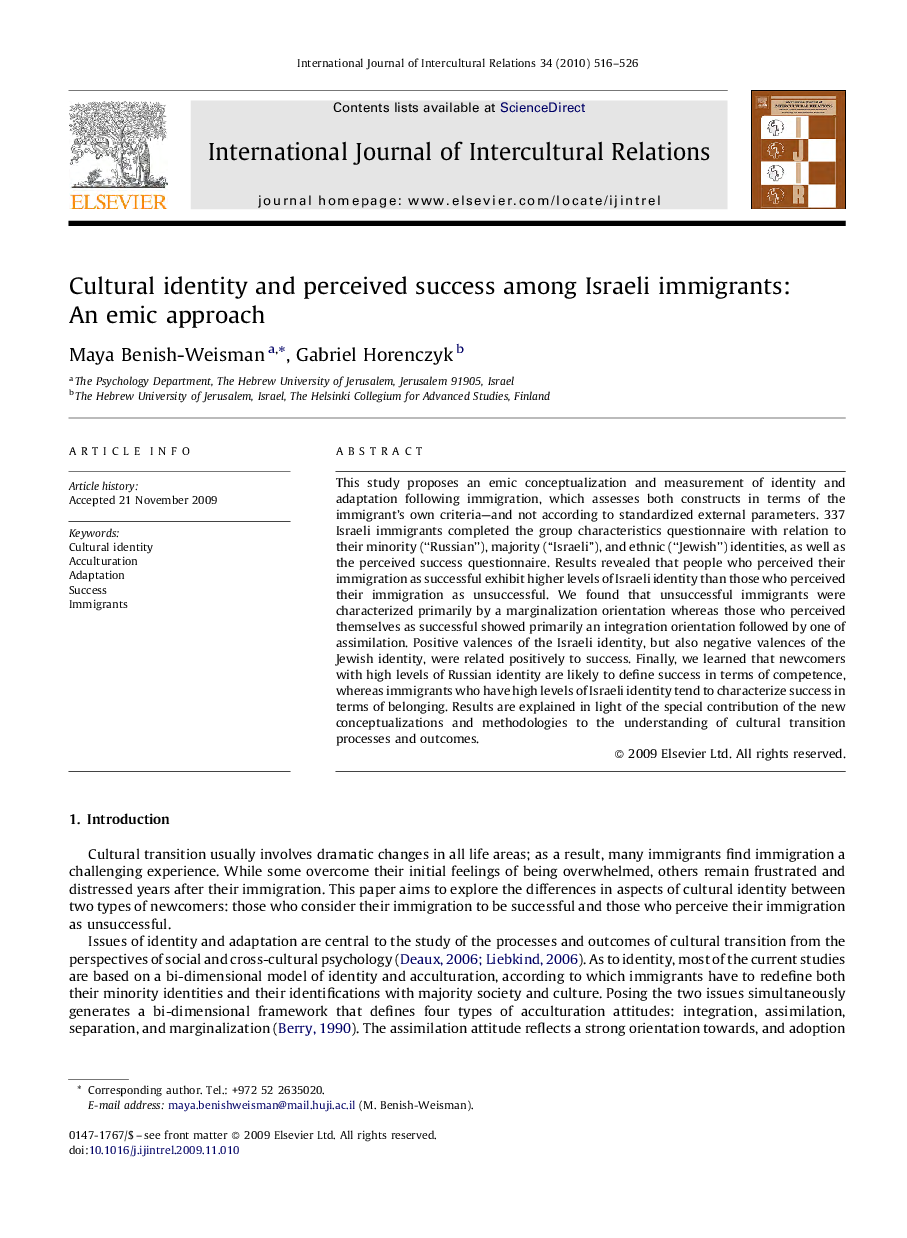| Article ID | Journal | Published Year | Pages | File Type |
|---|---|---|---|---|
| 947294 | International Journal of Intercultural Relations | 2010 | 11 Pages |
This study proposes an emic conceptualization and measurement of identity and adaptation following immigration, which assesses both constructs in terms of the immigrant's own criteria—and not according to standardized external parameters. 337 Israeli immigrants completed the group characteristics questionnaire with relation to their minority (“Russian”), majority (“Israeli”), and ethnic (“Jewish”) identities, as well as the perceived success questionnaire. Results revealed that people who perceived their immigration as successful exhibit higher levels of Israeli identity than those who perceived their immigration as unsuccessful. We found that unsuccessful immigrants were characterized primarily by a marginalization orientation whereas those who perceived themselves as successful showed primarily an integration orientation followed by one of assimilation. Positive valences of the Israeli identity, but also negative valences of the Jewish identity, were related positively to success. Finally, we learned that newcomers with high levels of Russian identity are likely to define success in terms of competence, whereas immigrants who have high levels of Israeli identity tend to characterize success in terms of belonging. Results are explained in light of the special contribution of the new conceptualizations and methodologies to the understanding of cultural transition processes and outcomes.
